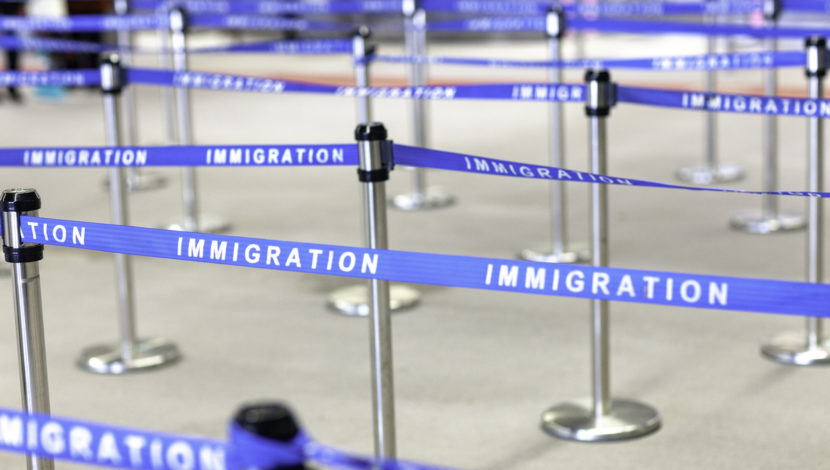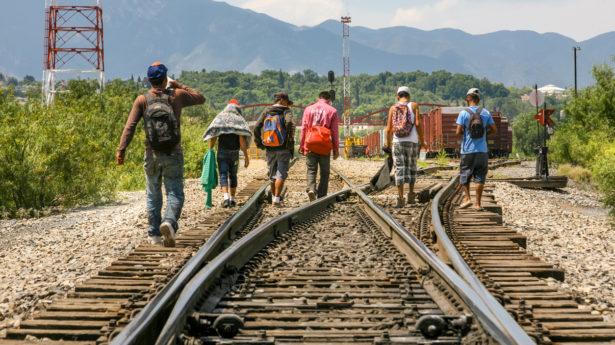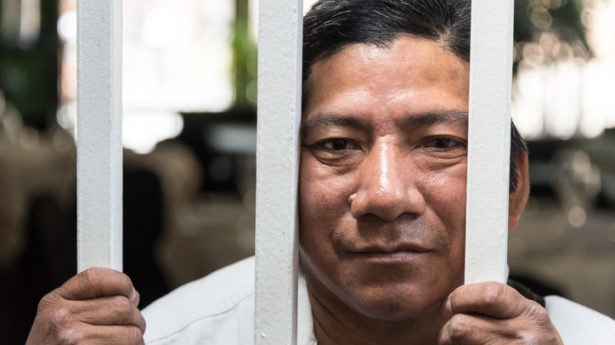The Unitarian Universalist Service Committee advances human rights through grassroots collaborations.
Invisible Walls Across the Continent: Preserving the Right to Asylum (Part 2)

By on December 5, 2019
In October, UUSC published Part 1 of our series on the ways the Trump administration’s latest policies are interfering with the right to seek asylum. In that post, we warned against the dangers posed by the administration’s so-called “safe third country” agreements with three Central America nations, which in reality are anything but safe places for migrants. Since then, these fears have been confirmed and magnified, as the administration begins deporting asylum-seekers for the first time under its new third-country agreement with Guatemala.
An Unsafe Third Country Agreement
The administration’s claim that Guatemala is a “safe” place to send refugees is a monstrous deception. A “safe third country” agreement implies that a foreign country can fully replace the screening and protections an asylum-seeker would otherwise receive in the United States. Far from having the infrastructure to safely process and resettle people seeking asylum from other countries, however, Guatemala has a miniscule and untested refugee protection system with reportedly fewer than 10 people on staff.
Just a few decades ago, the Guatemalan military committed a genocide against the country’s Indigenous Maya people, with the backing of U.S. agencies. To this day, Guatemala remains a place where human rights defenders, women, environmental activists, and Indigenous leaders are gravely at risk. Nonetheless, the United States is proposing to send potentially thousands of people there who have virtually no ties to the country, with few to no guarantees of their safety.
Of course, the United States has deported many Guatemalan citizens in the past, often after inadequate screenings and without the chance to present their asylum case fully to a judge. However, the third-country agreement marks the first time the United States has deliberately sent non-nationals of Guatemala to a country they barely know—simply because they set foot on Guatemalan territory on their journey north. More disturbingly still, the agreement permits the government to deport these individuals with even fewer safeguards than exist for other asylum-seekers.
In a new federal regulation implementing the agreement published on November 19, which immediately went into effect, the Trump administration laid out the procedure for deporting people to Honduras, El Salvador, or Guatemala under “third-country” provisions. The regulation, published as an “interim final rule,” states that a non-national who has passed through one of these countries on their journey to the United States can be sent back there without any consideration of their original asylum claim —and without the chance to apply for protections in the United States.
In order to avoid this fate, an asylum-seeker must show they are “more likely than not” to face persecution or torture in the place they are being sent. This is a burden of proof higher than that required for asylum in general, and one very difficult to meet for people who may have spent almost no time in the country to which they are about to be removed. Asylum-seekers will not even have access to an attorney during this screening.
Taking Action to Respond
Implementing “safe third country” agreements with governments that cannot provide even a modicum of safety to their own citizens is an atrocity on scale with the Trump administration’s other most notorious policies, including family separation. Compared to that policy, however—which is continuing to this day in altered forms—the third-country agreements have received relatively little scrutiny, in part because they are being enforced in distant countries far from the gaze of the U.S. public.
As U.S. residents, we should be outraged by the violence our government is perpetrating and enabling against the people of Central America. And we are not powerless to stop it. Members of the public can submit comments now condemning the rule that implements the new agreements through the Federal Register.
Meanwhile, legislators in the U.S. House and Senate recently introduced a pathbreaking bill, the Refugee Protection Act of 2019, that strengthens the U.S. asylum system. The bill also addresses the full range of strategies the Trump administration has employed to damage and undermine humanitarian protection during its time in office, including the third-country agreements. UUSC will be sharing other ways to support this legislation and other initiatives to protect asylum in the coming weeks and months.
Photo Credit: iStock – Tony Studio
***
About UUSC: Guided by the belief that all people have inherent worth and dignity, UUSC advances human rights globally by partnering with affected communities who are confronting injustice, mobilizing to challenge oppressive systems, and inspiring and sustaining spiritually grounded activism for justice. We invite you to join us in this journey toward realizing a better future!

